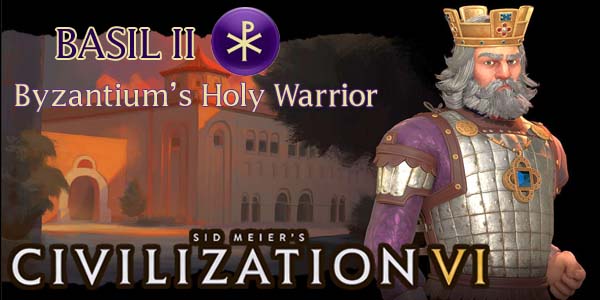
I've been diving into my Steam wishlist and backlog while waiting for this fall's suite of football video games. Stranded Deep is a game that I had on my Steam wishlist for years -- when it first became available through "early access" -- along with games like The Long Dark and The Forest. I don't typically invest in early access games because I don't want the incompleteness of the game to combine with my overly-critical eye and completely sour me to an experience that would likely be positive when the game is finished. This is also the reason that I rarely go back to games that received major overhauls post-release, like No Man's Sky or SimCity (2013) -- I'm already soured on the game, and it's unlikely to win me back.
I never got around to buying Stranded Deep on Steam, even after it left early access which is apparently still in early access on Steam, because the "survival sim" fad had petered out and my own interest in that particular game fizzled out as well.
Survival sims were a huge fad on Steam, but the fad started to fizzle out
long before indie titles like Stranded Deep or The Forest ever saw full releases.
But Stranded Deep showed up as another free game for PSPlus subscribers (along with Control), and I went ahead and downloaded it. Gotta get that $60 per year of value from the subscription somehow. Honestly, I use my PSPlus subscription mostly for the cloud storage. I consider it "game progress insurance" in case my console fails on me. So I rarely play the free games. But I mostly liked Control, so went ahead and gave Stranded Deep a shot too.
Stranded Deep is definitely not as good as Control.
Survival of the wiki-est
I kinda knew I was in for a disappointing experience when I had to pause the game during the tutorial in order to look up how to proceed. My girlfriend also said as much and wondered out loud why I would even continue playing a game that couldn't even do an adequate job of communicating its fundamental mechanics. She said I have much more patience than her, because she would have given up right then and there.
I had troubles right from the start with simple things like operating the inventory and performing some of the early tutorial crafting. The thing that dead-ended my progress and forced me to look online was trying to figure out where to get the leaves to make rope to craft the knife. I thought I would use leaves from trees, but I wasn't sure which trees, nor was I sure how to pull leaves from trees. The game lets me pluck coconuts off of trees, so I thought it would allow the same for plucking leaves off of trees. Nope. So I tried using my stone tool to cut leaves off of palm trees, only to get palm fronds, which cannot be made into rope. Then I started doing laps around the island looking for seaweed or hemp or something. So 2 minutes into the game, and there I was stuck on the tutorial.
I had to go online to find where to get fibrous leaves.
It turns out, the necessary fibrous leaves are harvested from the exactly 2 yucca plants on my starting island, both of which are kind of hidden next to large boulders. Or I could cut the baby palms growing all over the island for small amounts of fibrous leaves. But I didn't think to try this because I didn't have any reason to think that the baby palm fronds would be any different from the adult palm fronds.
This specific tutorial problem could have been fixed by modifying the tutorial objectives to specifically tell the player to harvest fibrous leaves from a yucca or baby palm. More generally though, it would have been helpful if the game could provide a tooltip when the player hovers over certain resources that explains what that resource might be used for. Or have the character speak to himself out loud that "I could probably use the leaves of that yucca to make rope.". The character comments out loud how "disgusting" it is to skin an animal every time I do it (even though the character has been living off of skinned animals for weeks and should be used to it), so the developers were definitely able to implement contextual dialogue. And even if that kind of dialogue is too difficult to implement, an "examine" button (like in old-school survival horror games) could have worked to tell the player in plain text what can be done with any given resource on the island. [More]
I recently posted a new video to my YouTube channel about my frustrations with the design of Control's "challenging" gameplay. I'm not going to transcribe the entire video here on the blog because most of what is in the video is already in my previous written review of the game.
In summary, the video compares the "tough but fair" design philosophy of From Software's games (most notably, Dark Souls) with the way that difficulty is implemented in Control. Even though I found Control to be a much easier game overall, and I suffered far fewer deaths in Control compared to Dark Souls, I did feel that Control lacked that "tough but fair" feeling that Dark Souls is famous for. Control uses a lot of seemingly cheap tricks to artificially inflate the difficulty of the game. If deliberate, then they are cheap tricks. If not deliberate, then they are faulty game design. I may not have died as often in Control, but the few deaths that I did suffer rarely felt deserved.
The full critique is available on YouTube.
The video also contrasts Control's healing system with that of Doom (2016) and Bloodborne. All three games seem to be trying to encourage fast-paced, aggressive play by rewarding the player with health for relentlessly assailing the enemy. Yet this intent doesn't come through as clearly in Control because the player needs to be close to where the enemy dies in order to pick up the health, but most of Control's action is done at medium or long range. Doom and Bloodborne, however, give health to the player when the player performs melee attacks, ensuring that even if the health is dropped on the ground as a pickup, that the player is always close enough to immediately get it if they need it.
One thing that I neglected to mention in the actual video, but which I want to add here, is that Control also has enemies with hit-scan weapons. Most enemies have machine guns that instantly damage the player if the enemy has line of sight. Attacks are not always projectiles that travel across the arena and which can be dodged, blocked, or otherwise avoided. This means that exposing yourself to crossfire is almost certain death if your health is critical in Control, and it contributes to the player needing to slow things down and play cautiously and defensively, instead of maintaining that fast-paced, aggressive play. [More]

Firaxis has released the final update for its "New Frontiers" DLC Pass for Civilization VI. I have attempted to create guides for each new civilization included in the packs, but there is one civilization that I just didn't have time to cover when it was first released. That civilization was part of the September 2020 update, and it is the Byzantine Empire, lead by Basil II.

It looks like "New Frontiers" represents the end of the Civilization VI life cycle. If that is true, then don't fret. If I get enough demand from my Patrons, I'll also write guides for the "New Frontiers" game modes, or go back and create / update guides for legacy leaders. We also have new games such as Old World and Humankind coming out. I'll be playing both games when they release on Steam, and can also write guides for those games, if my supporters ask for it.
By the third century AD, the Roman Empire had expanded to control much of Asia Minor and the Eastern Mediterranean. The cities in the eastern Greek, Asia Minor, and eastern African provinces tended to be larger and more developed than settlements in the west, owing largely to the Greek and Macadonian empires that had preceeded Rome's occupation of the regions. This made these cities far wealthier than most western cities, and in 330 AD, Emperor Constantine relocated the Roman capital to the city of Byzantium due to its strategic location at the epicenter of trade routes between Europe and Asia, and between the Mediterranean and Black seas. The empire was later split into Western and Eastern administrative partitions, each with its own emperor. When Rome was sacked in 476 and the Western Roman Empire collapsed, the Eastern Empire in Constantinople continued to thrive.
It can be argued, thusly, that the Roman Empire survived until the fall of Constantinople to the Ottoman Turks in the 15th century. However, even though the Byzantine Empire can trace its authority directly to Imperial Rome, and it retained much of the legal and administrative framework inherited from the Roman Empire, eastern culture had begun to diverge from western culture before even the fall of Rome. Most citizens of the Eastern Empire may have considered themselves to be "Roman", but they spoke Greek instead of Latin. The architecture utilized ornate domes and spires as opposed to the austere columns, arches, and triangles of Latin architecture. Religious practices in the east also gradually transitioned away from the dogmatic practices of the Catholic Church until the Schism of 1054 formally established the Eastern Orthodox Church. It is, thus, equally accurate to say that the Byzantine Empire came to represent its own unique culture, independent of the Western Roman Empire.

Basil II Porphyrogenitus was a life-long ruler of the Eastern Roman Empire. He was coronated as co-emperor along with his brother when he was just two years old, and ascended to the status of senior emperor at the age of 18, ruling until his death almost 50 years later. For most of his reign, he personally lead his armies into battle against Anatolian rebels, Bulgaria, the Fatimid Caliphate, and the Kingdom of Georgia, securing the empire's borders in both the west and east. Despite being away from Constantinople for so long, he also found time to distinguish himself as an administrator, reforming tax and property laws to protect poor land-owners from exploitation by wealthier elites. He also married off his sister to Vladimir I of Kiev, securing an alliance with the Kievan Rus and converting them to Orthodox Christianity. His reign was so successful, that the Empire prospered for decades after his death, despite his successor emperors being considered largely inept by both contemporary writers and modern historians. Though he is considered a national hero by the Greeks, he is known as "Basil the Murderer" by Bulgarians.
Basil II favors aggressive religious play backed up with a powerful mounted army and navy. He should seek to convert or conquer rival holy cities as soon as possible, then crush or convert his remaining rivals.
[More]
9717627d-e9ed-44d7-b203-9c3945c77bcd|2|5.0
Tags:Sid Meier's Civilization, Civilization VI, Byzantine Empire, Byzantium, Basil II, porphyrognnetos, taxis, hippodrome, tagma, dromon, Divine Guardian, entertainment complex, amenity, cavalry, heavy cavalry, navy, religion, holy city, prophet
"We don't get a lot of things to really care about."
It is really difficult to talk about this movie without kind of spoiling the whole reason to recommend watching it. Needless to say, Pig is a cleverly-subversive rebuke of the toxicly-masculine "revenge porn" movies that it is inspired by -- movies like John Wick and Taken with a little Quentin Tarantino thrown in. The movie was pitched to me as "Nick Cage goes John Wick to rescue his kidnapped truffle pig." I like John Wick and Taken just fine, and I was surprised at where Pig ended up going, but it goes without saying that Pig ends up offering something much deeper and more meaningful.
Pig is a sad, depressing movie about dealing with loss and grief; about reflecting on lives that didn't turn out the way we wanted them to; about the past that was, the present that isn't, and the future that will never be. Sometimes life spirals out of control because of the poor choices we make; sometimes it's just tragic bad luck. Either way, we cannot undo what's done, and we can only go on one more day at a time.
Yet in spite of the depressing path that the story takes, Pig somehow manages to present an uplifting message about connecting with other people through empathy for them and their situation, and about finding common ground between people who cannot possibly be more different. Even if you can't get what you want through civil discourse, it's still not worth resorting to violence.
Pig will be another example that I will point to, along with The Martian and Moana, of a movie that doesn't need a traditional villain or a climactic fist-fight or shootout to tell a compelling and tension-filled story that can connect with an audience. Once again, the writers of any future Star Trek movies should pay close attention to this one, and take notes.
So yes, I highly recommend watching this film. If you haven't watched it yet, then you can stop reading here and come back when you have watched it, because I can't talk any more about why I like it without spoiling everything that makes it good and meaningful.
Did you watch it yet? [More]

I don't think I've ever played a football game that feels like it truly nails special teams play. Madden has been especially bad at this phase of football for a very long time, and has largely neglected it year-in and year-out. Every now and then, a release comes out that focuses on special teams, but the upgrade is never as comprehensive as it should be. I was considering making a video about all of special teams, but that's too big a topic to tackle in a single video, so I decided that it would be best to make shorter videos that each focus on specific aspects of special teams play.
While drafting the script for my previous video about pass blocking and pass rushing, I had started thinking about issues with blocking and rushing in special teams, and thought I'd do a video about one specific specialist position that has been a personal crusade of mine for quite a few years now. I'll surely discuss more of Madden's special teams failings in future videos. But for today, I want to talk about how Madden completely fails to do justice to an oft-overlooked and under-appreciated specialist position: the longsnapper.
The full video on YouTube contains additional commentary and examples.
I'm looking at this specific position for two reasons:
- I played on special teams in high school and worked alongside our longsnapper. He spent extra time before and after practices honing that skill.
- And the 2nd reason I'm covering this topic is: unlike other highly specialized positions like holder and kickoff coverage gunners, Madden actually includes Longsnappers as a position in the depth chart, but has never included any mechanics or rules that actually make the longsnapper a meaningful position on your team, or which differentiate who is a good longsnapper versus who is not.
As for my high school teammates on special teams: there were several of us who never would have seen playing time if not for our special teams duties. Instead of resigning ourselves to a life on the bench, as some other reserves had done, we carved out niches for ourselves, so that we could see more playing time. We worked hard to earn our positions, and the coaches noticed the hard work (especially if it was extra-curricular in nature), and they rewarded us with extra rotational reps on both offense and defense in relief of tired starters. My experience has lead me to respect special teamers, probably much more than most football fans.
Some of us reserve players would have never seen playing time if not for our specialist roles.
A Knee-Jerk Reaction
I remember proposing a "Longsnapping" rating on a YouTube comment or Madden forum like 6 or 7 years ago, and received absolutely vitriolic responses that largely boiled down to "having the outcome of a game decided by a random fluke like a botched snap would be horrible game design." It's a sentiment that does makes a certain degree of sense. Determining the outcome of a match by a die roll does seem like it would be bad video game design -- at least, outside of digital craps.
But hold on a minute. Is it really bad game design...?
Running backs have a rating that determines their likeliness to fumble. Quarterbacks have several ratings that determine the accuracy of passes. Receivers have several ratings that determine their likelihood to catch a pass. Linemen have ratings that determine if they whif on a block. Defenders have ratings that determine the likelihood of missing tackles. DBs have ratings that determine whether they blow a coverage. Kickers have ratings that determine if they miss a kick. Every player has ratings that determine if they get injured on any given play. All of these ratings can affect the outcome of a play or an entire game based on a random die roll. Heck, even coaches have ratings that determine how much players develop in the offseason or how likely free agents are to sign a contract. Ratings semi-randomly deciding the outcomes of games or entire seasons is apparently OK for literally every other position both on and off the field, but somehow having a rating that determines if a snap or special teams hold is botched is a bridge too far?!
Nobody complains about other positions having ratings that can randomly decide a game.
To be fair to the critics: if you're playing a 5 or 6-minute quarter pick-up game online or in Ultimate Team, and each team is only getting between 3 and 5 possessions the entire game, it does make sense that you wouldn't want your one and only attempt at a punt or field goal to go awry because of a fluke like a botched snap. In such a shortened game, it would swing the game wildly in one direction or the other, with little-to-no time or opportunity for a team to overcome such an unfortunate outcome. (I keep saying, every installment in this series is probably going to refer back to that first essay about quarter length.) [More]
52c53c48-f188-452b-8dd5-d518c8a400d5|0|.0
Tags:Madden, Madden NFL, How Madden Fails to Simulate Football, EA, EA Sports, Electronic Arts, Tiburon, football, simulation, sports, YouTube, longsnap, longsnapper, special teams, field goal, punt, Tony Romo, Ace Ventura: Pet Detective
|

| 12 | | | | | | | 60 | | 11 | | | | | | | 55 | | 10 | | | | | | | 50 | | 09 | | | | | | | 45 | | 08 | | | | | | | 40 | | 07 | | | | | | | 35 | | 06 | | | | | | | 30 | | 05 | | | | | | | 25 | | 04 | | | | | | | 20 | | 03 | | | | | | | 15 | | 02 | | | | | | | 10 | | 01 | | | | | | | 05 |
|